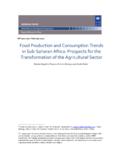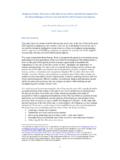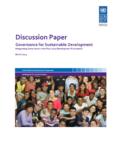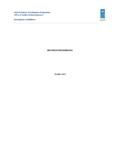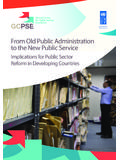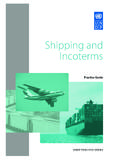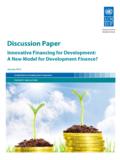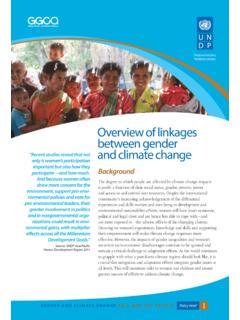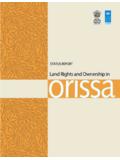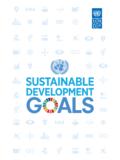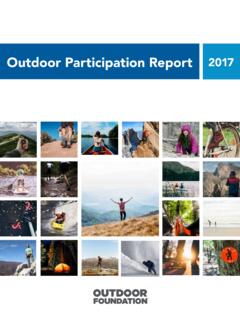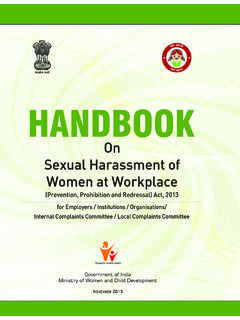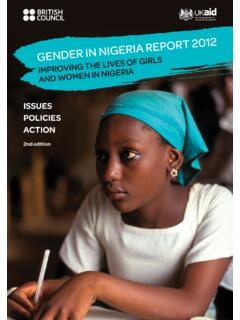Transcription of ENHANCING YOUTH POLITICAL PARTICIPATION throughout …
1 United Nations Development Programme E N H A N C I N G YO U T H. P O L I T I C A L PA R T I C I PAT I O N. throughout the E L E C TO R A L C YC L E. A G o o d Pra c t i ce G u i d e E n h a n c i n g Yo u t h P o l i t i c a l Pa r t i c i pat i o n throughout the E l e c to r a l Cyc l e A G ood Prac tice Guide YOUTH should be given a chance to take an active part in the decision-making at local, national and global levels. United Nations Secretary-General, Ban Ki-moon ACKNOWLEDGMENTS. This publication would not have been possible without the core contribution of Anna L hrmann who served as the lead author of this guide.
2 This guide contains original ideas, suggestions, experiences and knowledge shared by numerous individuals. In alphabetical order, those individuals include Abla Amawi, Kwabena Asante-Ntiamoah, Julie Ballington, Ruth Beekmans, Alissar Chaker, Kevin Deveaux, Georgina de la Fuente, Aleida Ferreyra, Hassan Hussein, Ravi Karkara, Jamshed Kazi, Nina Kolybashkina, Linda Maguire, Noha El-Mikawy Mohamed Al Sharif, Jennifer Shaw, Wolfgang Stuppert, Anita Vandenbeld and Jonathan Zigrand. A special thanks to Aleida Ferreyra who managed and edited the guide and Manuela Matzinger who provided substan- tive research and production support.
3 A special thanks to Gretchen Luchsinger who copyedited the guide. The Democratic Governance Group of the Bureau for Development Policy is particularly grateful to the insights and extensive comments from members of the Inter-Agency Coordination Mechanism in Electoral Assistance (ICMEA): Bego a Lasagabaster (UN WOMEN), Elizabeth Moorsmith (Electoral Assistance Division in the Department of POLITICAL Affairs) and Herbert Loret (Department of Peacekeeping Operations). A UNDP regional working meeting in Cairo in February 2012 offered valuable input, as did focus group discussions and interviews with Egyptian YOUTH activ- ists and development practitioners.
4 The UNDP/UN-HABITAT YOUTH 21 global stakeholder meeting in Nairobi in March 2012 helped identify additional good practice examples. Publications from several different organizations have been used in the development of this guide. Whenever possible, hyperlinks have been provided to allow the user direct access to the original work. Design: Green Communication Design inc. ( ). Table of Contents 2 ACRONYMS. 3 EXECUTIVE SUMMARY. 11 INTRODUCTION. 19 PART A: REVIEW OF GOOD PRACTICES AND STRATEGIES. 21 (1) Legal Framework 24 (2) Pre-Electoral Period 31 (3) Electoral Period 34 (4) Post- Electoral Period 36 Conclusion 37 PART B: RESOURCES.
5 38 Annex 1: Collection of Good Practice Examples 61 Annex 2: I nternational Framework Documents and Resolutions 63 REFERENCES. A G o o d Prac t i ce Guide 1. ACRONYMS. CSO Civil society organization EMB Electoral management body International IDEA International Institute for Democracy and Electoral Assistance IFES International Foundation for Electoral Systems IPU Inter-Parliamentary Union MP Member of parliament NDI National Democratic Institute for International Affairs NGO Non-governmental organization UNICEF United Nations Children's Fund UN DESA United Nations Department of Economic and Social Affairs UNDP United Nations Development Programme UN Habitat United Nations Human Settlement Programme USAID United States
6 Agency for International Development 2 E nha nc i ng Yo u th Po l i ti ca l Pa r ti ci p ati o n t hro ugho ut t he Elec to ral Cyc le Executive Summary Young people between the ages of 15 and 25 constitute a fifth of the world's population. While they are often involved in informal, politically relevant processes, such as activism or civic engagement, they are not formally represented in national POLITICAL institutions such as parliaments and many of them do not participate in elections. This can impact on the quality of democratic governance. The inclusion of YOUTH in formal politics is important, as the 2011/2012 Arab States popular uprisings and various Occupy movements have demonstrated.
7 In countries in transition, fresh ideas and new leadership can help to overcome authoritarian practices. Where YOUTH -led protests have forced authoritarian regimes from power, significant frustration is likely to arise if YOUTH are not included in new formal decision-making. This can destabilize democratization and accelerate conflict dynamics. The international community has recognized the importance of YOUTH participating in POLITICAL systems, including through several international conventions and UN resolutions (see Annex 2). In line with these commitments, UNDP views YOUTH as a positive force for transformative social change, and aims to help enhance YOUTH POLITICAL PARTICIPATION .
8 This guide summarizes some good practices to consider for UNDP, other development practitioners and electoral stakeholders in working towards that goal. A basic principle is that support for the POLITICAL PARTICIPATION of young people should extend across the electoral cycle. Capacity development for young candidates, for example, has proven to be more effective as a continuous effort than as a one-off event three months before an election. Young people who participate actively in their community from early on are more likely to become engaged citizens and voters.
9 This guide traces some entry points before, during and after elections, drawing on UNDP's electoral cycle approach, which emphasizes strategic interventions beyond the electoral event. Another core principle is that YOUTH POLITICAL PARTICIPATION needs to be meaningful and effective, going beyond token gestures. Capacity development is an integral measure, and while building No one is born a good citizen; no nation is born a democracy. Rather, both are processes that continue to evolve over a lifetime. Young people must be YOUTH included from birth. A society that cuts itself off from its YOUTH severs its lifeline.
10 It is condemned to bleed to death. Kofi Annan, Former Secretary-General of the United Nations A G o o d Prac t i ce Guide 3. individual capacities is key, the capacities of organizations and the degree to which an environment enables individuals and institutions to participate in POLITICAL processes can also be factored in. It has been found to be beneficial when interventions to assist YOUTH are as YOUTH -driven as possible. They can encourage YOUTH to participate in project management, partner with YOUTH -led initiatives, and facilitate YOUTH inclusion in national and local consultation processes, including through new technology.
